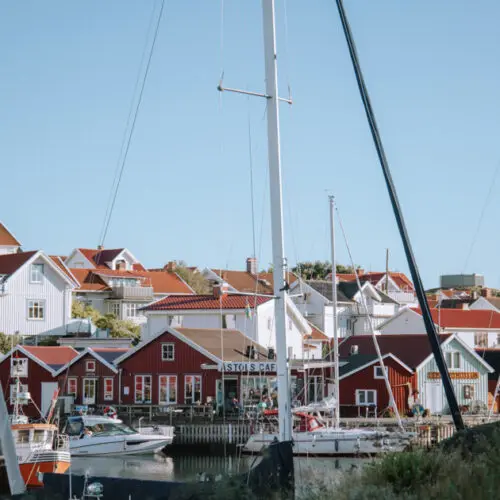Planning a budget trip and looking for some tips to travel Europe cheap? You’re in the right place!
Europe is a big continent with so many incredible places to discover. If you are coming from overseas I understand how daunting it can be, and how expensive it can seem. It almost seems impossible to travel Europe cheap when you are looking at expensive airfares and beautiful hotels located in the middle of popular destinations. I have been travelling Europe on a budget since 2014, and since that time have picked up some great tips to make everything a little bit cheaper! I have put them together in this guide including:
- How to make a budget
- How to save money on flights
- Saving on accomodation costs
- Travelling cheaply through Europe
- How to eat out on a budget
- The best cheap mobile data plans
How to make a budget to travel Europe Cheap
From my experience it can cost anywhere from $4000 – $20,000 for a 4 week long trip to Europe. It seems dramatically different right? Yes, it does, and the reason for this is nothing other than smart planning. There are so many great ways to save money travelling in Europe, but the greatest of them all is preparing a budget and sticking to it. This means planning how much you want to spend, working out how much travel, accomodation will cost, and then how much you will have left over to spend on food and experiences.
How to create a budget
After many years of travelling, I find that the best way to create and stick to a budget is with a spread sheet. I create a document split up into days, with money allocated to each day for accomodation. I always book accomodation in advance and work out the cost of trains and buses so I know how much I will be spending in Europe. For example, it would usually look like this.
| Day 1 | Total budget: | $100 |
| Hotel: | $45 | |
| Travel: | $15 | |
| Other: | $5 | |
| Total remaining: | $35 |
As can be seen in the table above, on a $100 a day budget, with hotels all under $50 a night and around $15 on bus costs, I would have a total of $35 left for food, drinks and activities! From this, I then keep a track in the notes on my phone showing how much I have spent on things just to check I am on track with the budget! This is one of the best ways to travel Europe on a budget and actually stick to your cheap expenditure!
How to save money on flights
Depending where you are flying from, this is often the most expensive part of the trip. Obviously flight costs depend on when and where you are travelling to. For example, April, July and December are renowned for being almost double the price sometimes as the off season months of February and October. Saying this, there are still great ways to save on flights! To travel Europe cheap, I recommend either booking your flights as far in advance as you can, or waiting for a sale period to start. In February there are usually great airline sales or end of financial year sales, when the prices usually drop by a few $100.
Flights within Europe are often cheaper with airlines such as Easyjet, Ryanair and Eurowings. It’s worth looking at these sometimes if you are travelling a long distance with little baggage. For example, it can be cheaper to fly from Milan to Stockholm than take 4 trains for the journey!
The best websites to check for budget flights
Websites such as Kayak and Momondo often have great deals or ways to find cheaper flights by taking stop overs along the way. If I have decided on a few destinations to visit, I often search flight costs for all of these before booking and then changing my itinerary around where the cheapest flights fly in and out of.
I always recommend signing up to a frequent flyer program like Virgin or Qantas as you can get points when you fly with them or a partner company that add up quicker than you’d think. I have has 2 free flights from Australia to Europe using only my points with Qantas that I received by paying for everything on my Qantas credit card!
Travel Europe with cheap accomodation
My top tip for saving money when travelling Europe on a budget is always recommend booking as far in advance possible. This is because often the nicer, cheaper options sell out first. This means that if you book later you are either left with cheap places you don’t want to stay, or nice but really expensive options. After deciding on our travel itinerary, the next thing I do is book accomodation. I always book this in order of itinerary so I know that if I have to change a stop because I can’t afford it, it doesn’t mean un-booking everything else!
Where to find cheap accomodation
I always start my searching on Booking.com and Airbnb. When I find a few places I like I then check their own websites and compare the prices. Sometimes hotels offer cheaper prices and discount rates when you book straight through them.
When booking you have to remember that some parts of Europe will be much cheaper than others to travel around. For example, you will likely find accomodation in some parts of Germany or Poland for around $10 a night, where as you will struggle to find anywhere cheaper than $75 on the Amalfi Coast.
Another great way to travel Europe cheap is by staying in hostels. However, sometimes the nicer hostels can be more expensive than a local bed and breakfast so make sure you check out all your options before booking anything! If you are happy to have a bed in a 6, 8 or 14 bed room you will find the best rates! If not, you can often get a private room with shared bathroom for a great price!
Another option which is almost free a lot of the time is camping. This is a great money saver when you are travelling on a budget in Scandinavia. In this part of Europe, accomodation can be incredibly expensive while camping is free if you can find the right spot! This is because of the right of public access in these countries which means you can basically camp anywhere as long as you are far enough away from anyone’s house. This doesn’t work as well if you are moving between cities, but is a great option for hikers and more nature seeking backpackers!
Travelling cheaply through Europe
Booking your inter city travel in advance often saves a lot of costs too – especially when you are travelling by train or with companies who always put their prices up the closer you get to the date. Most countries have their own transportation systems, such as Trenitalia (Italy) and Deutsche Bahn (Germany) but I would definitely recommend checking out the private companies too as they often have longer routes for a cheaper price. Flixbus is my favourite of these and you can often find long bus trip tickets for only $6.
Travelling by train with an Interail or Eurail pass often seems like the best option if you are planning to take a lot of trips, but from my experience this is often a lot more expensive than booking all your tickets separately through each vendor. Once you have your itinerary planned, its worth checking the costs with Rome to Rio, a site that recommends different transport options with their costs for each part of your trip.
How to eat out on a budget
Eating out is usually where most of your money goes when you are travelling. In some countries, especially the Czech Republic, Hungary, Germany and Poland, we found that eating in a restaurant was incredibly cheap. This makes it easy to fit into your budget as you spent no more money eating out than if you were making food yourself. In other places, such as Italy, Greece and Switzerland, it is much more expensive to eat out. In these areas you are probably going to spend about 4x as much as the raw ingredients would cost. A few tips to work around this and still manage to travel to these places in Europe cheaply are to book accomodation with breakfast, stay in places with kitchens when possible, and eat out at lunch time.
Book hotels with breakfast
When you book accomodation with breakfast included you are already saving money on one meal a day. Sometimes these hotels can cost a little extra, but the quality and quantity of the breakfast is usually better than what you could buy elsewhere for that price!
Book self catering accomodation
Another option is to find accomodation with a kitchen. This was you can make food for breakfast, lunch and dinner without spending more that you would at home! This still means you can eat out every now and then because of the money you save on the days when you stay in! For example, with $20 a day for food you couldn’t afford a meal in Zurich that costs $30. However, if you are only spending $10 on buying grocery store food, after 3 days you already have the extra spare to eat out!
Eat out at lunch time
Lunch is a major game changer when it comes to travelling Europe cheaply. It is common in a lot of countries to ave special lunch time deals where they serve normal dishes but for a lower price, sometimes with coffee and cake included too!
The best cheap mobile data phone plans
It is so easy to get an international SIM card for your phone when you are overseas. In a few countries, companies offer pay as you go SIM cards that work throughout the whole of Europe for no extra cost. This is the card I usually use. In other countries they also offer tourist SIM cards that last for 7 – 30 days and usually have about 8gb data included. These are great if you are staying in one country, for example we had a 30 day card in Greece that gave us 10gb data for only 20 EURO. This was the best for the long period of time we were there, however, when we visited 7 countries in a month I used my Swedish SIM as it covered me for all of them.
Companies such as Orange and Vodafone offer great tourism SIMs. You can just buy then from local newsagents, and often they have stalls on the streets in the bigger cities where you just give your address.
There is also the option to buy an international SIM from your home country – this is an okay option if you want to be prepared but it usually ends up being a lot more expensive!






















